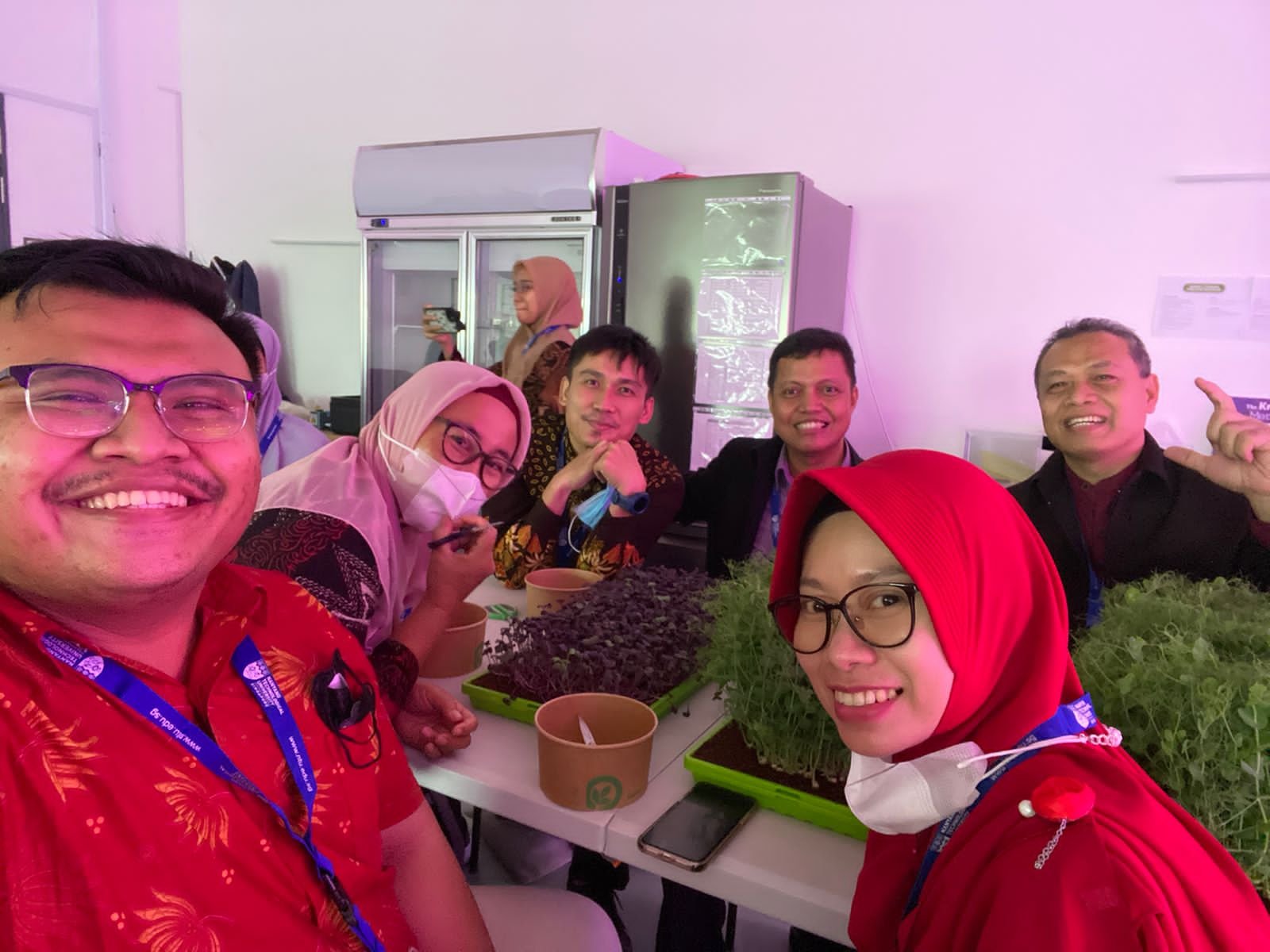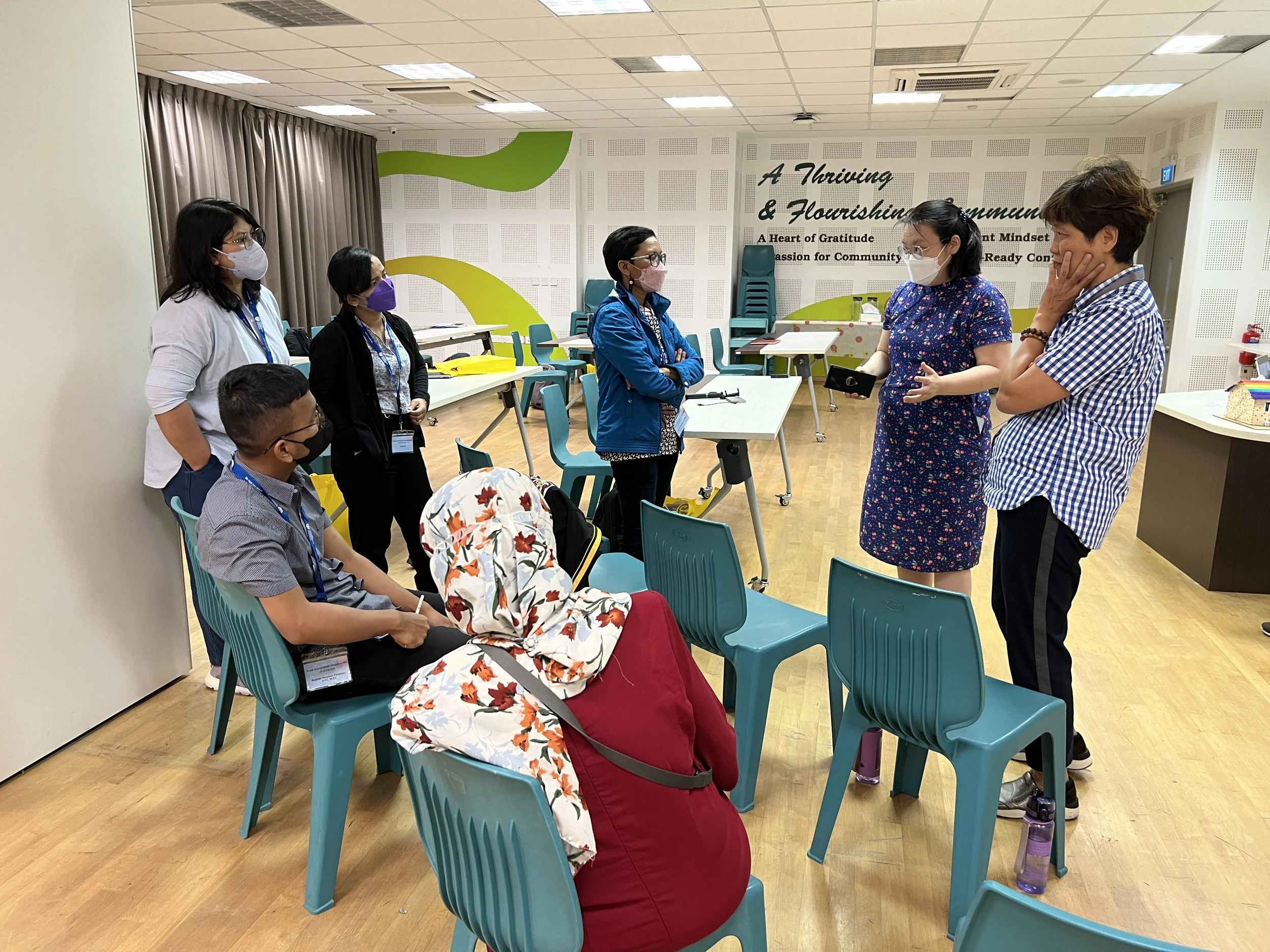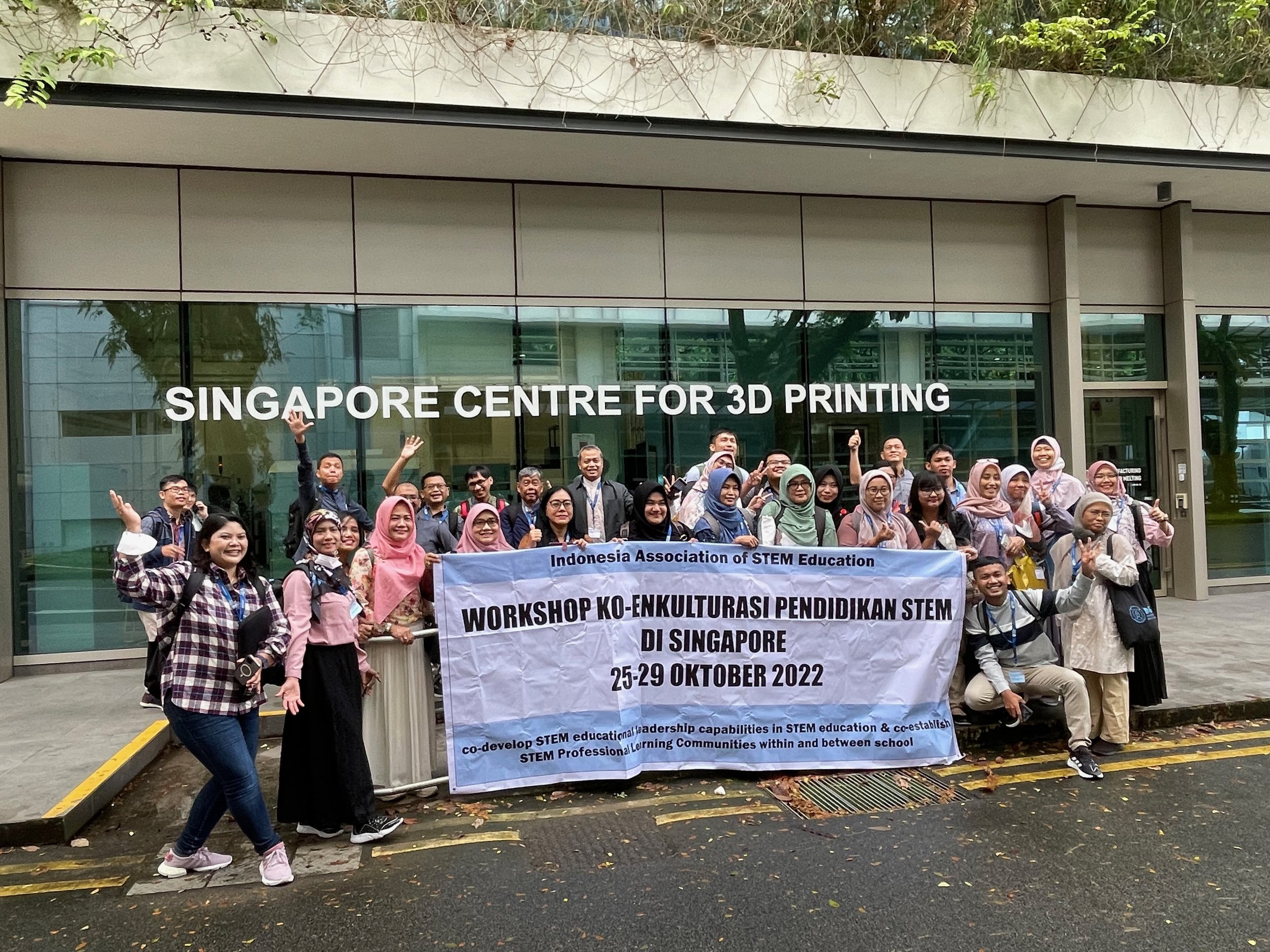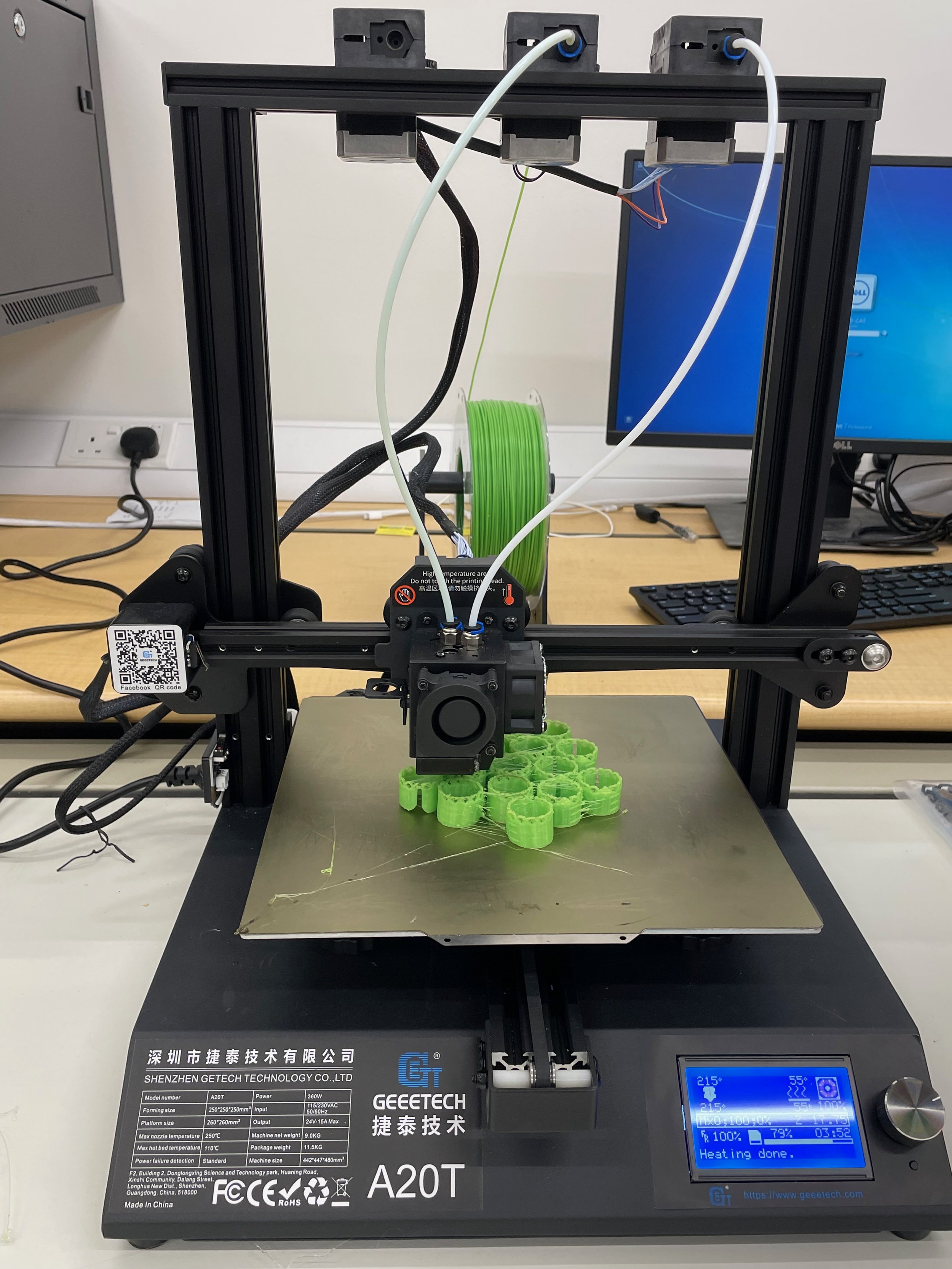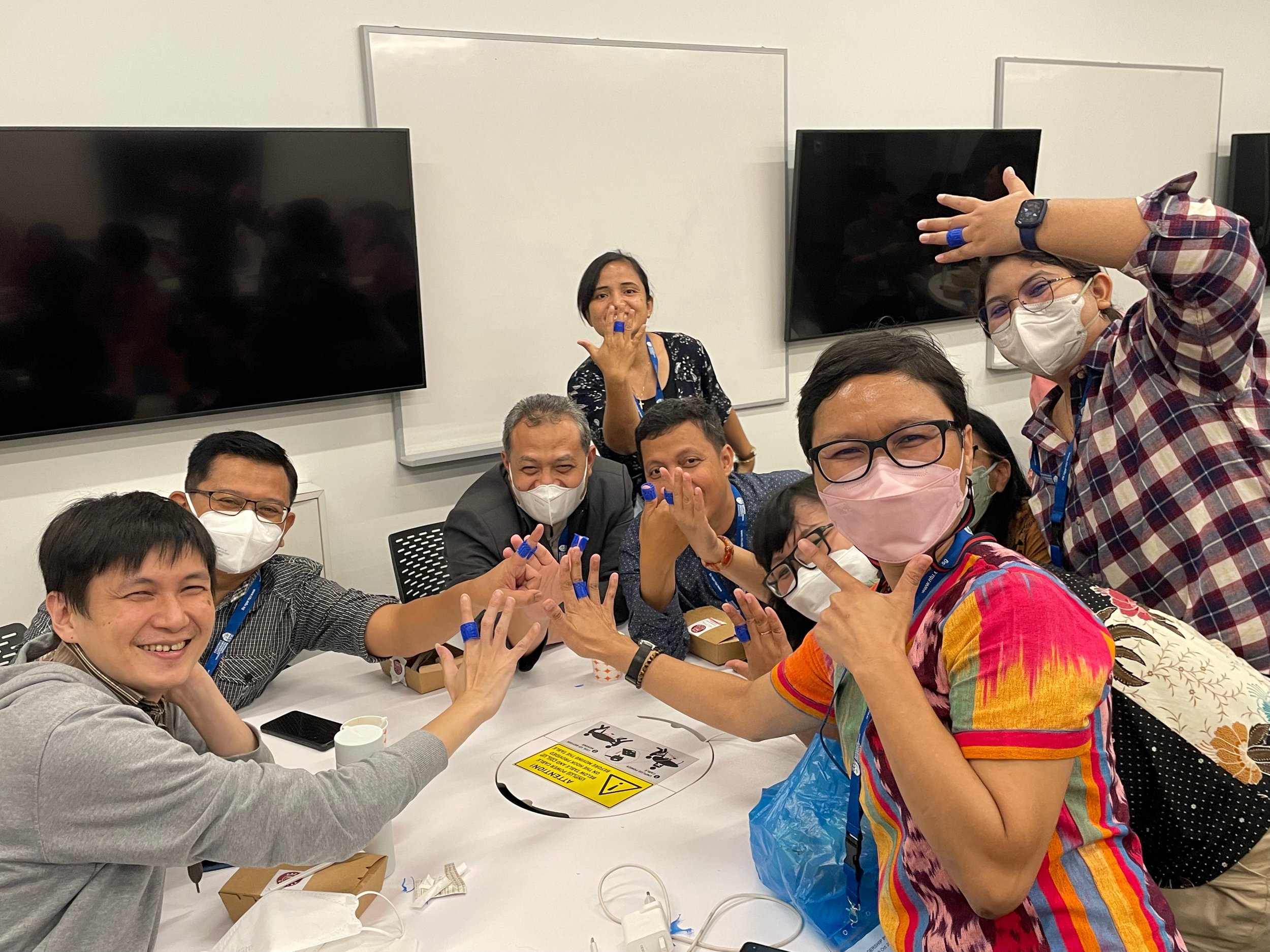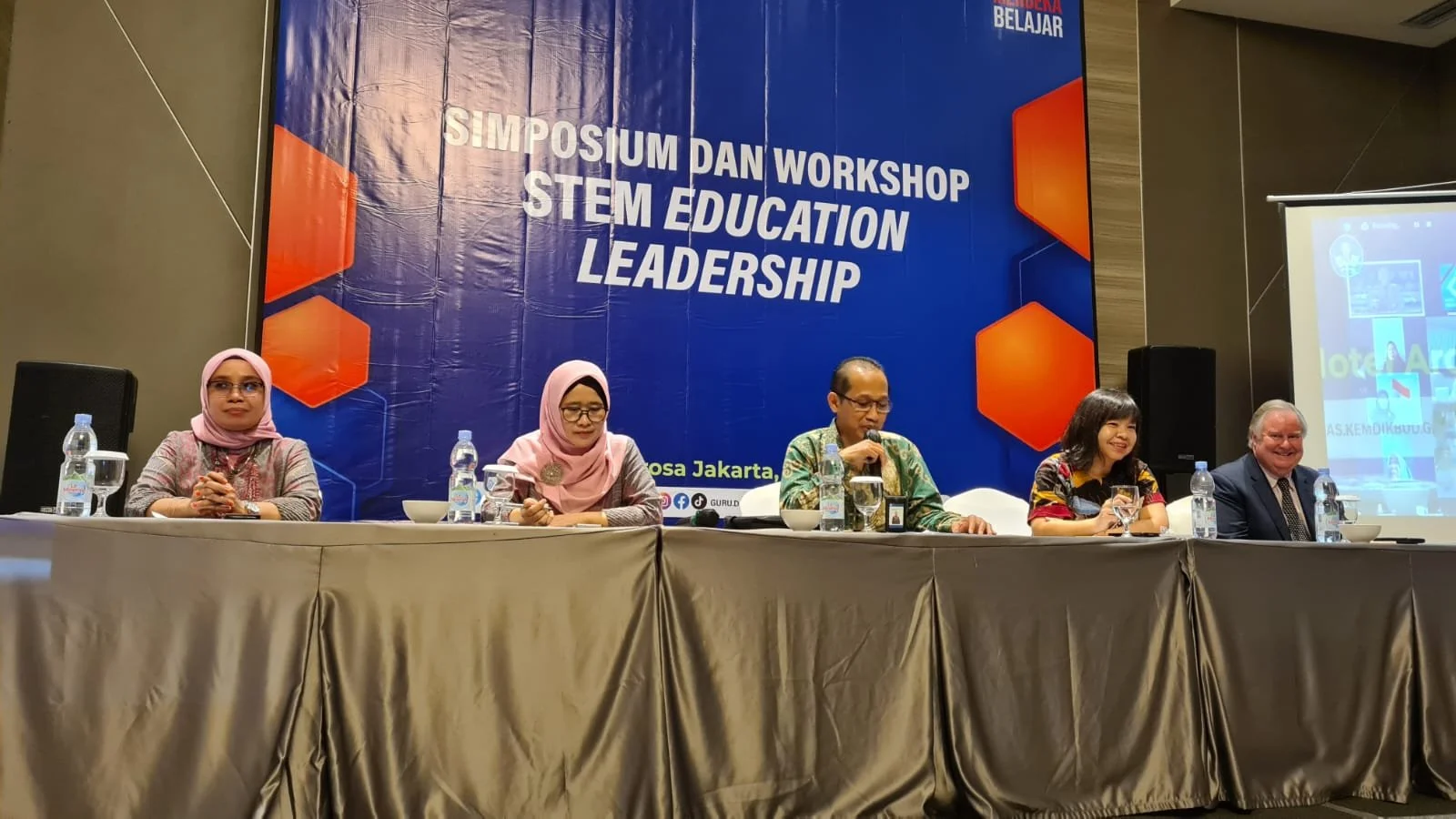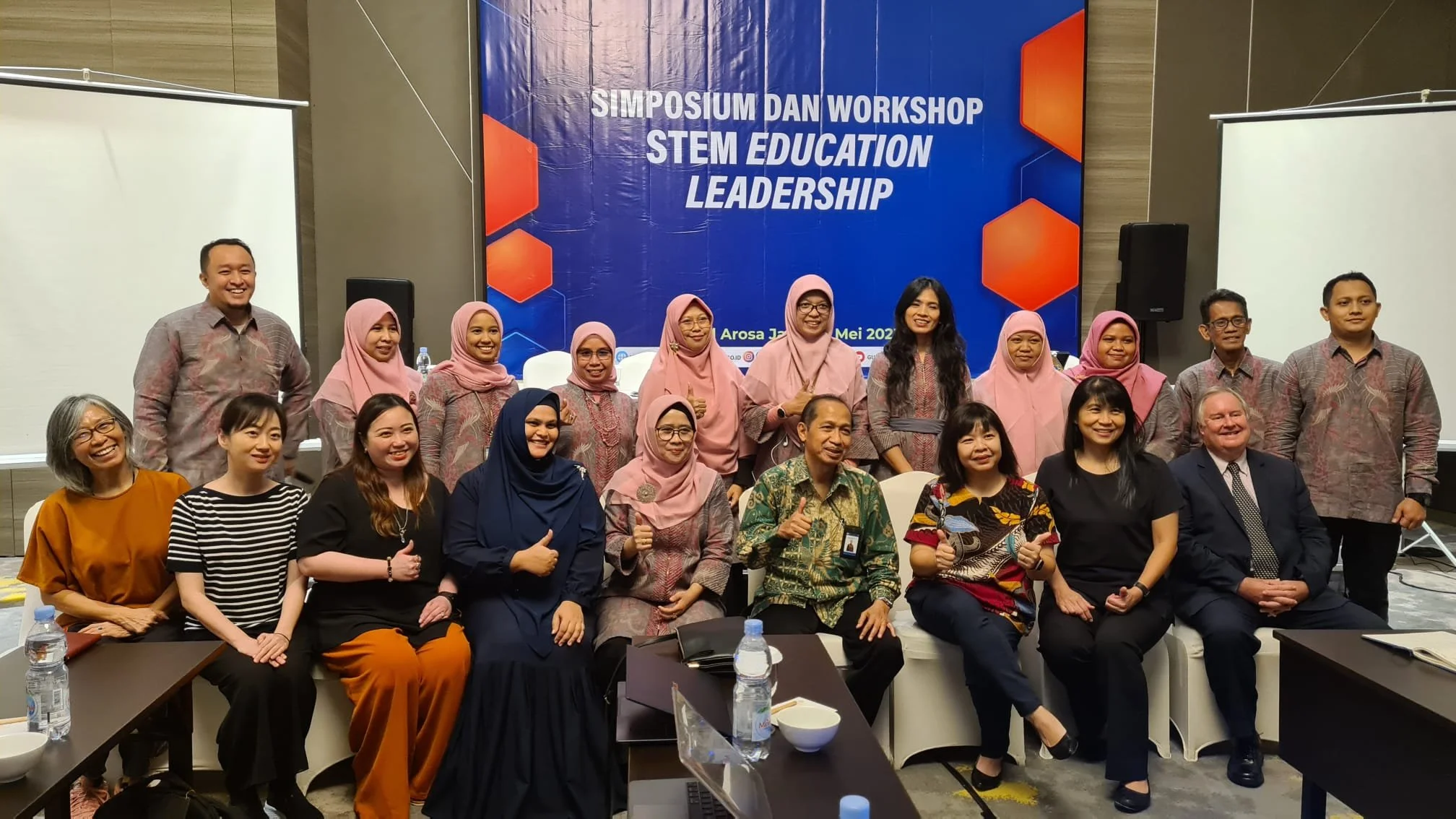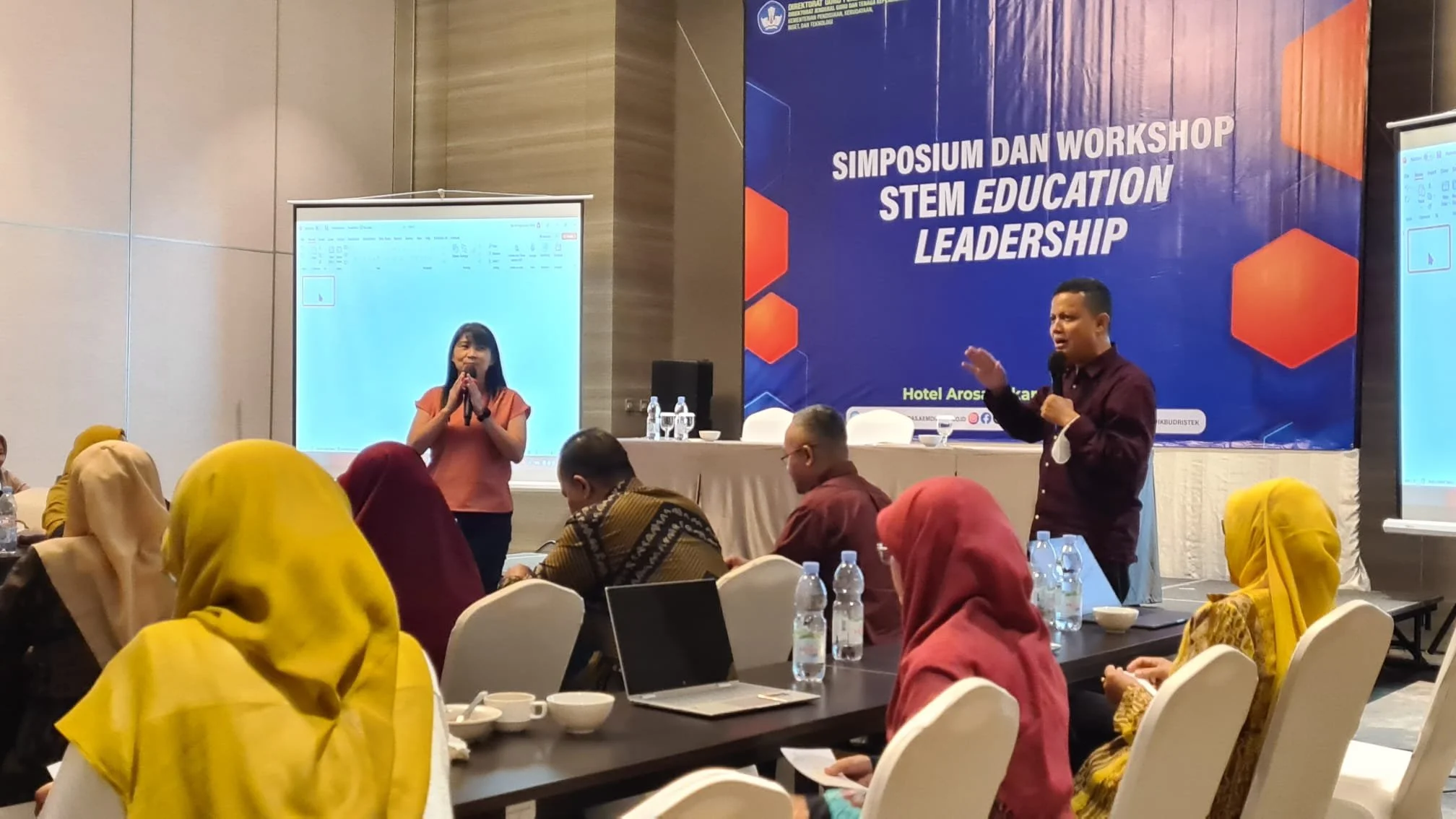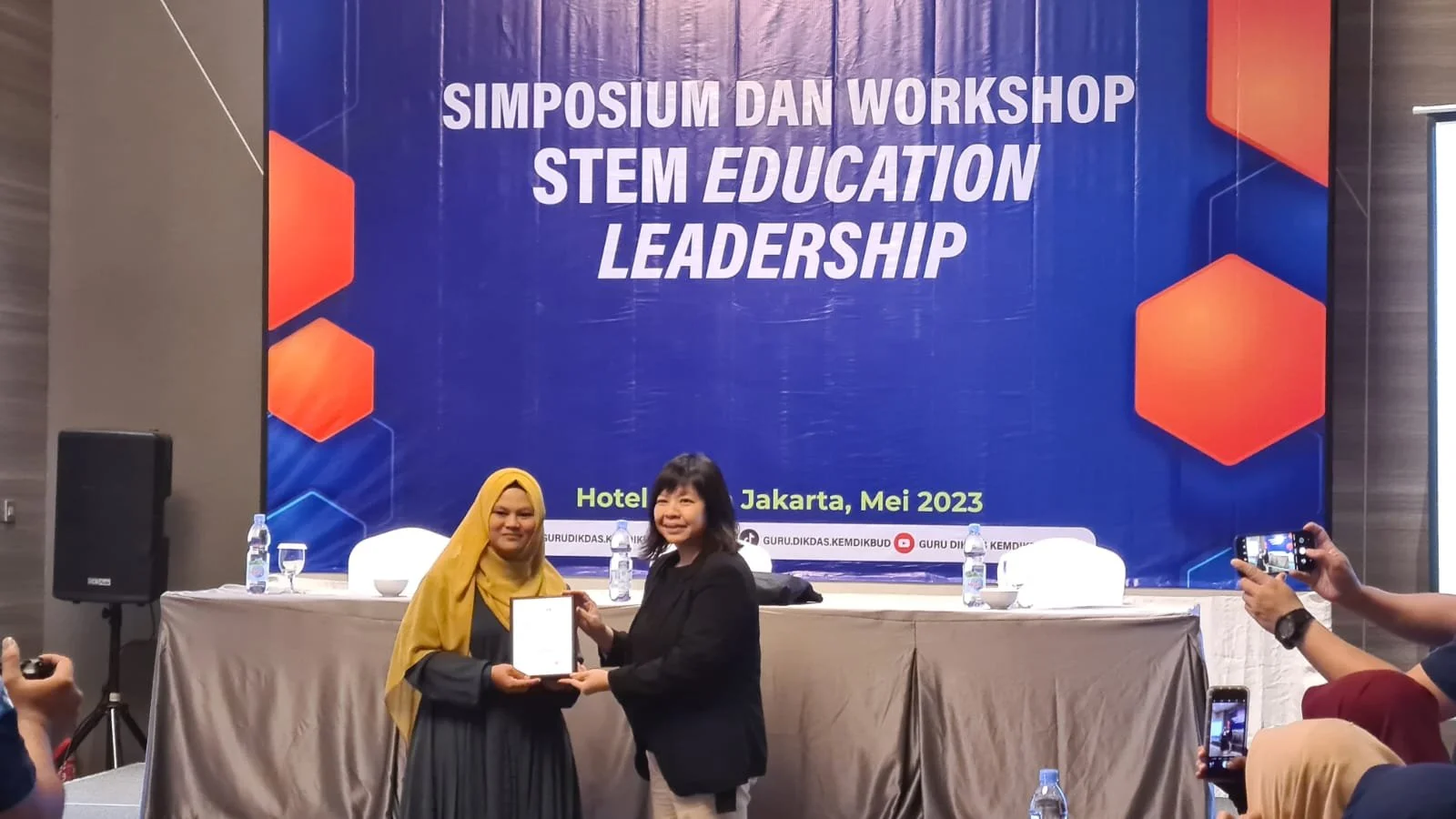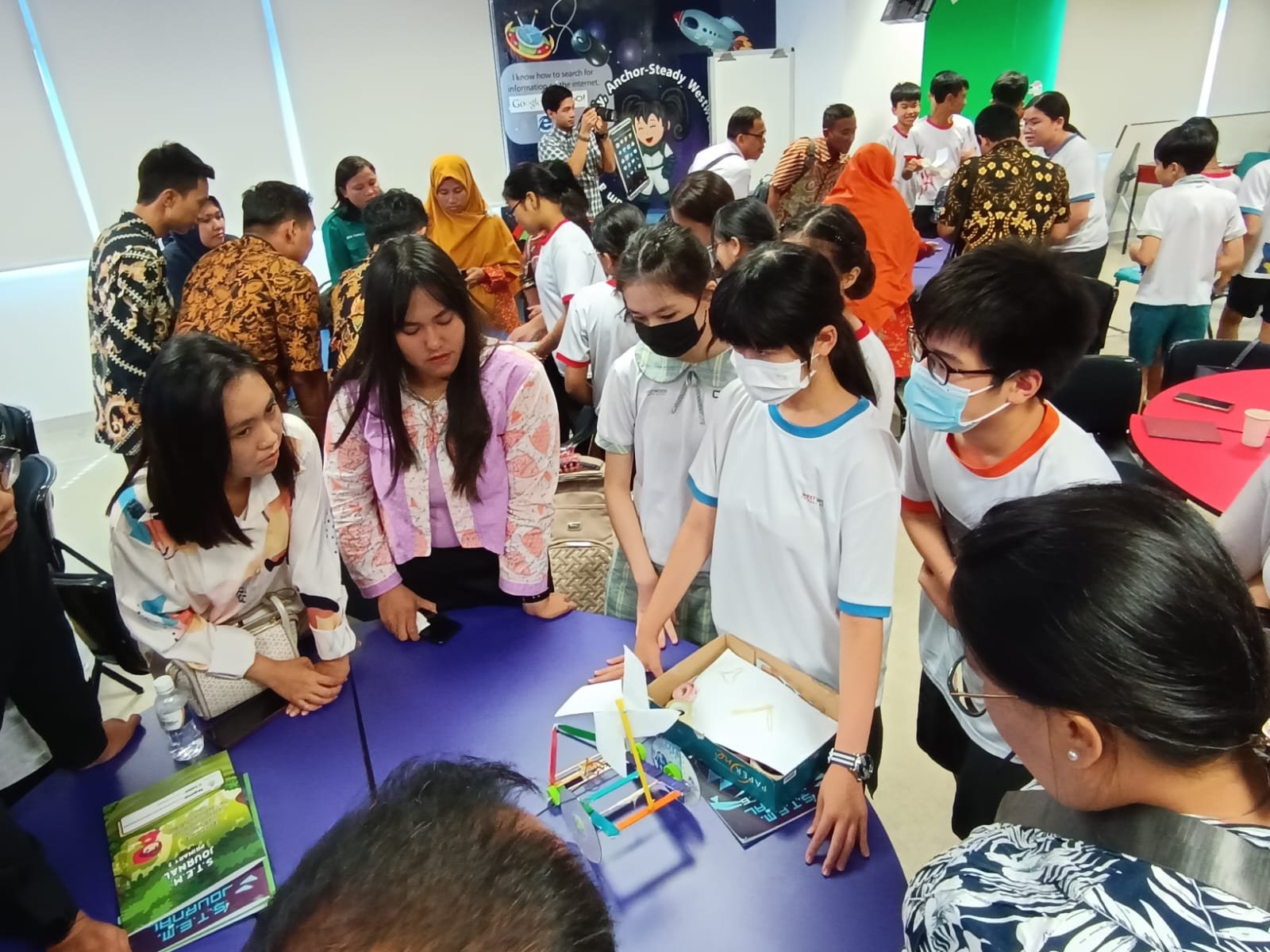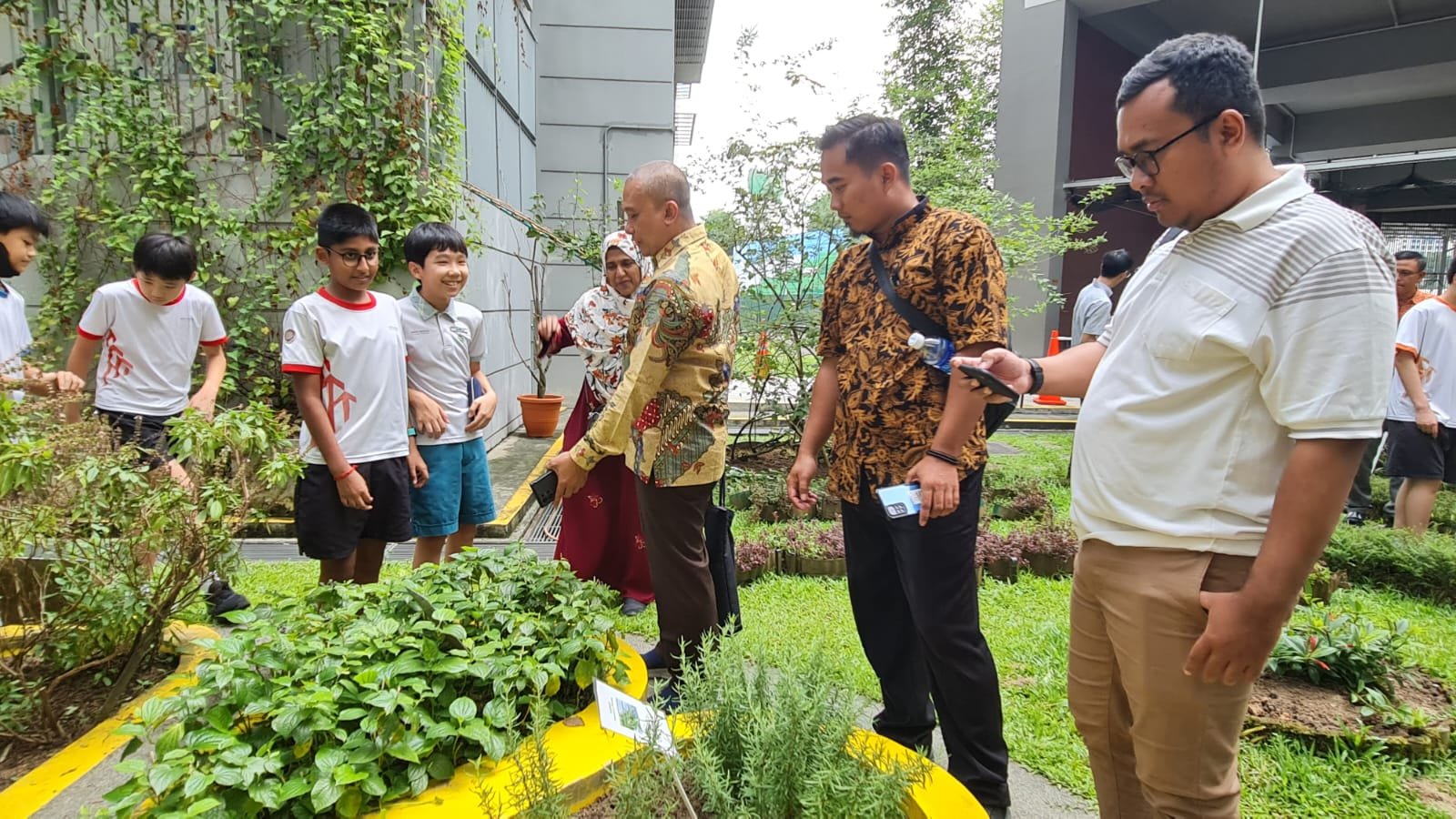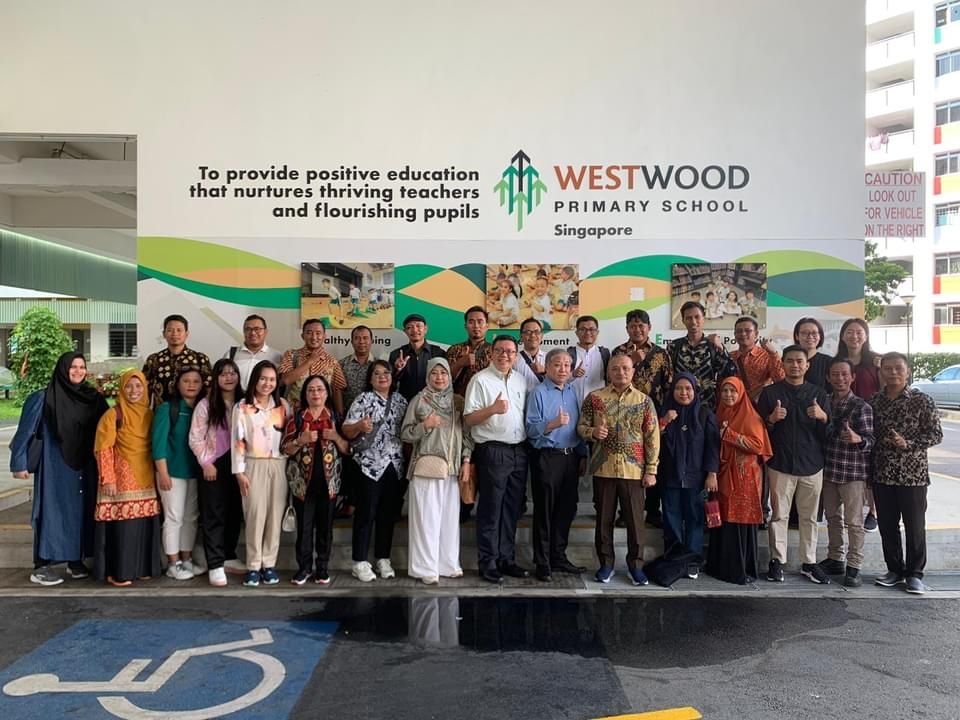STEM Programme in Indonesia
This is a three-year programme that aimed to co-develop STEM educational leadership capabilities of 720 Indonesian STEM educators and co-establish STEM professional learning communities within and between schools in Indonesia.
The Multi-centric Education, Research and Industry STEM Centre (meriSTEM@NIE) at the National Institute of Education, Nanyang Technological University, Singapore, was awarded a grant from Temasek Foundation to co-fund and co-implement this programme with the Ministry of Education, Culture, Research and Technology (Indonesia) as the host community partner. The local agencies involved in the Programme implementation in the various phases included the Centre for Development and Empowerment of Teacher and Education Personnel (CDETEP) in Science, CDETEP in Mathematics, Balai Besar Guru Penggerak (BBGP), Indonesia Association of STEM Education (IA-STEM) and Universiti Pendidikan Indonesia (UPI).
Programme Highlights
2021
2022
2023
2024
Master Teachers Workshop on STEM Leadership Theories and Practices
28 – 30 September 2021
Phase 1 (part 1) of the programme kicked off with a Workshop for Master Teachers on 28 – 30 September 2021 held remotely via zoom tele-conferencing between the meriSTEM@NIE team in Singapore and the 60 participants gathered in a hotel in Bandung.
It began with speeches by Dr. Iwan Syahril, Ph.D, Director General of Teachers and Educational Personnel, Ministry of Education, Culture, Research and Technology, Indonesia and Mr. Benedict Cheong, Chief Executive, Temasek Foundation International, Singapore. There were 4 lectures were organised on Day 1 of the workshop allowing for more hands-on activities and sharing sessions for the participants on the other two days. The workshop wrapped up on Day 3 with a guest lecture by an invited speaker.
STEM Teachers Workshops on cognitive and practical competencies in STEM
4 – 6 & 18 — 20 October 2021
Phase 1 (part 2) of the programme, STEM Teachers Workshop, to co-develop STEM teachers' cognitive and practical competencies in STEM curriculum theories, design, implementation and evaluation with Master Teachers in Phase 1, was held remotely via zoom tele-conferencing between the meriSTEM@NIE team in Singapore and participants gathered in a hotel in Bandung.
The workshops were organised around a series of lectures punctuated by group work, and sharing sessions. There were 2 lectures and a guest talk organised on Day 1 of the workshops allowing for more hands-on activities and sharing sessions for the participants on the other two days. The workshops wrapped up on Day 3 with the 4th lecture and reflections on the hands-on activities. On the last day of the workshops on 20th October, Dr. Eneng Susilawati representing the director of CDETEP Science made a closing speech.
Participants from 4 – 6 October 2021
Participants from 18 – 20 October 2021
Deepening competencies of Nuclei Schools
March — May 2022
In phase 1 (part 3) of the programme, meriSTEM@NIE faculty and selected Master Teachers from phase 1 (part 1) participate in hybrid school-based STEM PLC sessions and STEM lessons to provide inputs on STEM curriculum work and PLCs conducted in exemplary 20 nuclei schools, with teachers from phase 1 (part 2), to deepen their STEM curriculum competencies through lesson study and a professional learning community.
The programme was mentioned in the Indonesian media, and the articles can be found here and here.
At the end of the Phase 1 programme, the Ministry of Education, Culture, Research and Technology (Indonesia) hosted a working workshop for 10 nuclei school teachers who had participated in Phase 1 Part 3 to write 10 chapters that will be consolidated into a book that will be printed and disseminated to all public Indonesian schools. Click here to access some of the lesson packages that were developed.
Co-enculturation of STEM Expertise in Singapore
25 – 29 October 2022
Phase 2 of the programme took place from 25th to 29th October 2022 in Singapore and comprised a series of STEM workshops and learning journeys. The programme was designed for participants to learn about the emerging technologies that have been used in Singapore to design integrated STEM lessons, acquire knowledge on how coding, computational thinking, and engineering design thinking could be used to design and implement integrated problem-centric, solution-centric, and user-centric STEM lessons, and gain insights about Singapore STEM teaching and learning during the school visits and lesson observations.
After the opening ceremony, the 32 participants attended an urban agriculture workshop which was held over two days. The workshop started were first introduced engineering designing thinking through the context of urban farming. The hands-on experience of constructing their vertical farm prototype allowed them to better understand the limitations and challenges related to vertical farm design. In the second part of the workshop, they were brought to Skygreen, a vertical farming facility in Singapore to help them connect their classroom experiences to what the industries are doing. The tour started with a lecture on sustainable food supply and what Skygreens technologies aimed to do. This is followed by a tour of the Skygreen facilities where the participants were introduced to aquaculture systems, vertical farming structures, and how wastes are recycled to ensure that the farming system is sustainable.
At the end of Phase 2, led by Dr Arif Hidayat, the participants comprising University faculty members and school leaders, established the Indonesia Association of STEM Education in 2023. This Association aims to promote STEM education among Indonesian schools and align it with the Merdeka Curriculum of Indonesia.
STEM Education Leadership Symposium and Workshop
18 – 20 May 2023
The Symposium and Workshop on STEM Education Leadership on sharing accomplished STEM expertise, took place from 18 May to 20 May 2023 in Jakarta, Indonesia. Attended by 19 teacher representatives from nuclei schools, 10 facilitators, and approximately 80 online participants, the programme encapsulated the collective spirit of STEM, as practitioners from 20 Nuclei Schools in Indonesia gathered to share and learn from their experiences in implementing STEM lessons in their classrooms.
The first day of the programme began with an insightful keynote address from Associate Professor Teo Tang Wee, who offered her expert insights on STEM leadership and pedagogy. Day 2 featured profound keynote speeches from Associate Professor Tan Aik Ling and Associate Professor Arif Hidayat, bringing additional depth to the participants' understanding of STEM education. A competition took centre stage, featuring the presentation of results and processes in STEM teaching practices in the participants' respective nuclei schools. Following the presentations, the judges identified the top three presenters, whose outstanding contributions and exceptional teaching approaches were recognised and honoured through awards presented by meriSTEM@NIE. On the third and final day, participants participated in a mini-hackathon tasked with creating a device to help the visually impaired stay safe while preparing food for cooking. This activity was intended to provide the participants with new insights into large-scale STEM curriculum implementation using hackathons.
Co-enculturation of STEM Expertise in Singapore
23 – 27 October 2023
Phase 4 focused on the Co-enculturation of STEM Expertise in Singapore, held from 23 to 27 October 2023. This phase provided an invaluable opportunity for educators from Singapore and Indonesia to exchange insights and best practices in STEM curriculum development, leadership, and teaching methods. With 61 delegates from Indonesia attending, the programme aimed to strengthen the network of STEM educators and leaders by fostering cross-cultural collaboration in areas such as STEM curriculum leadership, professional learning communities (PLCs), and lesson study. Throughout the five-day programme, participants engaged in a variety of activities, including digital literacy workshops, school visits, and hands-on STEM lessons, all designed to deepen their understanding of effective STEM pedagogy. The goals of Phase 4 were to enhance participants' STEM teaching competencies, promote innovative teaching practices, and empower educators to lead transformative STEM education in their respective schools and regions.
Day 1
Day 2
Day 3
Day 4
Day 5
STEM Consultancy for Nuclei Schools
8 February — 1 March, 2024
Part 1 of phase 5 titled “Expanding Partnerships and Scaling-Up STEM Teacher Programme”, consisted of face-to-face consultations for nuclei schools, and took place from February 8 to March 1, 2024. The programme focused on scaling the teacher programme through consultation and visitation to selected schools. The NIE consultants, representatives from BBGP and selected Master Teachers in Cohorts 1 and 2 participated in on-site professional learning community (PLC) sessions and provided feedback on the STEM lessons.
Phase 5 aimed to deepen the practical application of the STEM curriculum and foster collaborative improvement across participating schools. Its goals were to enhance teachers' professional development, scale up effective STEM teaching practices, and promote long-term sustainability in STEM education leadership across Indonesia.
Co-Enculturation of STEM Expertise in Singapore
14 — 18 October, 2024
Phase 6 of the Programme was a five-day immersive experience aimed at deepening participants' understanding and application of STEM education principles. The programme featured diverse activities, including lectures, workshops, guided tours, and hands-on learning experiences. The goal of Phase 6 was to further equip educators with the practical tools and insights necessary to integrate STEM disciplines effectively in their teaching, while fostering global perspectives on sustainability and innovation. By the end of the programme, participants were celebrated for their dedication and growth, ready to apply their newfound knowledge in their educational contexts.
















